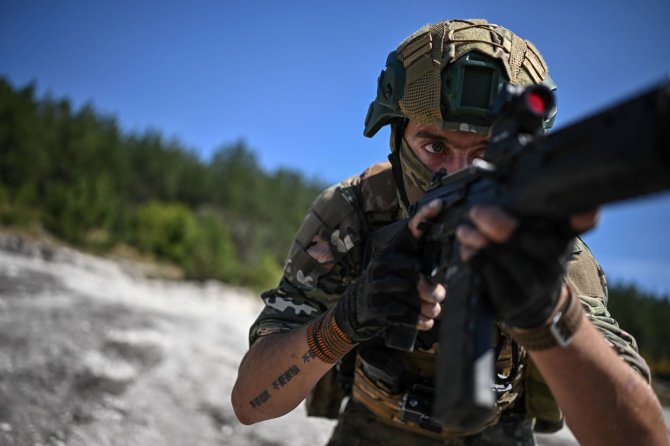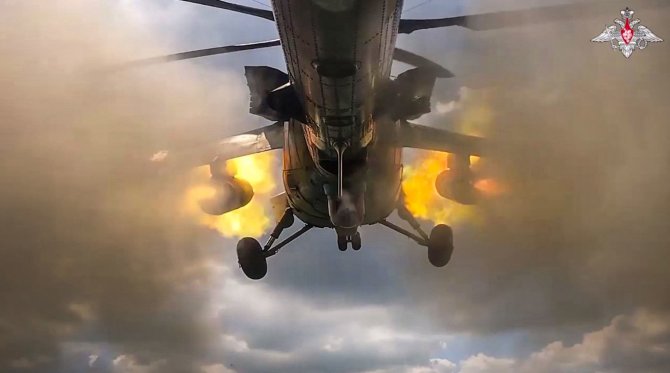
[ad_1]
“Was Ukraine’s sudden counterattack against Russia a decisive turning point in the war, a pointless spectacle, or a strategic blunder by Kiev?”
The article states that the Ukrainian operation has brought tangible benefits to Kiev – it has given a necessary boost to Ukrainian morale and helped to allay fears that Kiev was bogged down and losing the war. In addition, the Kursk Offensive has put the war back in the spotlight and given more power to voices calling for more support from the West.
The attack also exposed serious shortcomings in Russia’s intelligence and preparedness and embarrassed Russian President Vladimir Putin, according to Foreign Policy’s assessment, although there is no sign that the incursion weakened his resolve or slowed Russia’s advance in Donbass.
Observers believe these battlefield gains are unlikely to change the outcome of the war.
Even if Kiev manages to hold on to its recently seized territory, it will not be a major bargaining chip.
“The Kursk operation could lead to greater losses on the Ukrainian side than on the Russian side, and Ukraine cannot afford such proportions. It would be a big mistake to assume that the recent successes on the Kursk front mean that additional Western aid will enable Ukraine to regain Donbas or Crimea,” the article reads.
Disproportionate losses
The author points out that the situations of the two countries are very different. Although both sides have lost a lot of manpower and equipment, Ukraine has lost much more territory.
For example, Ukraine occupied about 643.7 sq. km of Russian territory and forced about 200,000 Russians to evacuate. However, these figures only account for 0.0064% of all Russian territory and 0.138% of its inhabitants.
“By contrast, Russia now controls about 20 percent of Ukrainian territory, and the war has reportedly forced nearly 35 percent of Ukraine’s residents to leave their homes. Even if Kiev manages to hold on to the recently captured territory, it will not constitute a significant bargaining chip,” Foreign Policy stressed.
The fate of Ukraine will be determined by what happens in Ukraine, not by Operation Kursk.
Analysts say the most important factors will be the willingness and ability of both sides to continue to die and make sacrifices on the battlefield, the level of support for Ukraine from other countries and whether a deal can be reached that keeps Ukraine’s unoccupied areas intact and secure.
Russia’s weaknesses
The first and most obvious lesson is a reminder of Russia’s military inefficiency.
“Given that Russia continues to make mistakes in this war and has achieved successes only slowly, it is unlikely that anyone still believes that Russia poses a serious military threat to the rest of Europe,” analysts told reporters.
Second, a successful invasion of Russia by Kiev would mean that existing “red lines” and other restrictions on Ukraine’s actions should be abandoned, and the West should allow Ukraine to fight Russia by any means.
Countries escalate when they lose a war. If Putin’s forces remain victorious in Donbass, he has no incentive to escalate. The danger of Russian escalation only arises if Moscow suffers a catastrophic defeat.
At the same time, analysts say it is not entirely true that there is no danger of escalation no matter what Ukraine does.
“When the country loses a war, the situation escalates. If Putin’s troops are still victorious in Donbass, he will have no incentive to escalate. Russia will be in danger of escalation only if Moscow suffers a catastrophic defeat, but this is not the case today,” the expert assessed.
They argue that Ukraine’s recent military successes should be seen as an opportunity to begin serious ceasefire negotiations rather than “an excuse to continue a costly war that Ukraine can survive but is unlikely to win.”
As Foreign Policy has previously reported, most of the Russian elite do not believe Russia deserves “total victory” and want a quick ceasefire on existing fronts.
Respondents said that there is no possibility of withdrawal of Russian-occupied territories in four Ukrainian regions. However, in other regions, such as Kharkiv, the occupied territories may be returned to Ukraine in exchange for their demilitarization.
(function(d, s, id) {
var js, fjs = d.getElementsByTagName(s)(0);
if (d.getElementById(id)) {
return;
}
js = d.createElement(s);
js.id = id;
js.src = "https://connect.facebook.net/lt_LT/sdk.js";
fjs.parentNode.insertBefore(js, fjs);
}(document, 'script', 'facebook-jssdk'));
[ad_2]
Source link




